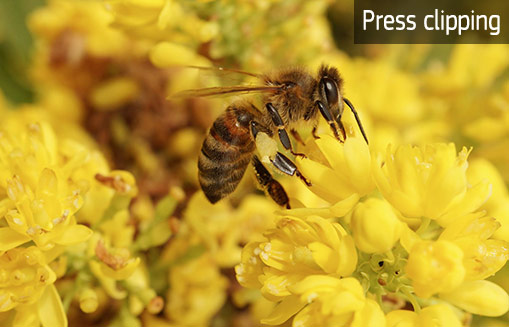An investigation will be carried out by an ERDF-funded project into how agricultural land in Europe can be made more attractive to insects without affecting farmers’ yields. Insect pollination is an important economic factor and indispensable to human survival. However, the number of wild bees, bumble bees, butterflies and hover flies is declining across Europe due to fewer flowering plants. In response, the BEESPOKE project is bringing researchers and other partners together to conduct fi
- 18 July 2019

An investigation will be carried out by an ERDF-funded project into how agricultural land in Europe can be made more attractive to insects without affecting farmers’ yields.
Insect pollination is an important economic factor and indispensable to human survival. However, the number of wild bees, bumble bees, butterflies and hover flies is declining across Europe due to fewer flowering plants.
In response, the BEESPOKE project is bringing researchers and other partners together to conduct field trials on numerous different crops. They are hoping to identify new methods, seed mixtures and other guidelines for farmers to boost insect diversity in their fields, pastures and meadows.
For example, researchers at Oldenburg University in Germany are looking into issues such as how pollinators are affected by harvesting, or the genetic diversity of plant species.
The project results im to enable farmers to create more resilient and sustainable agricultural ecosystems which actively promote the well-being of pollinators.
Related links:
Source article on https://www.innovations-report.de 05/07/19
Photo: © iStock/ Ruslan Danyliuk
